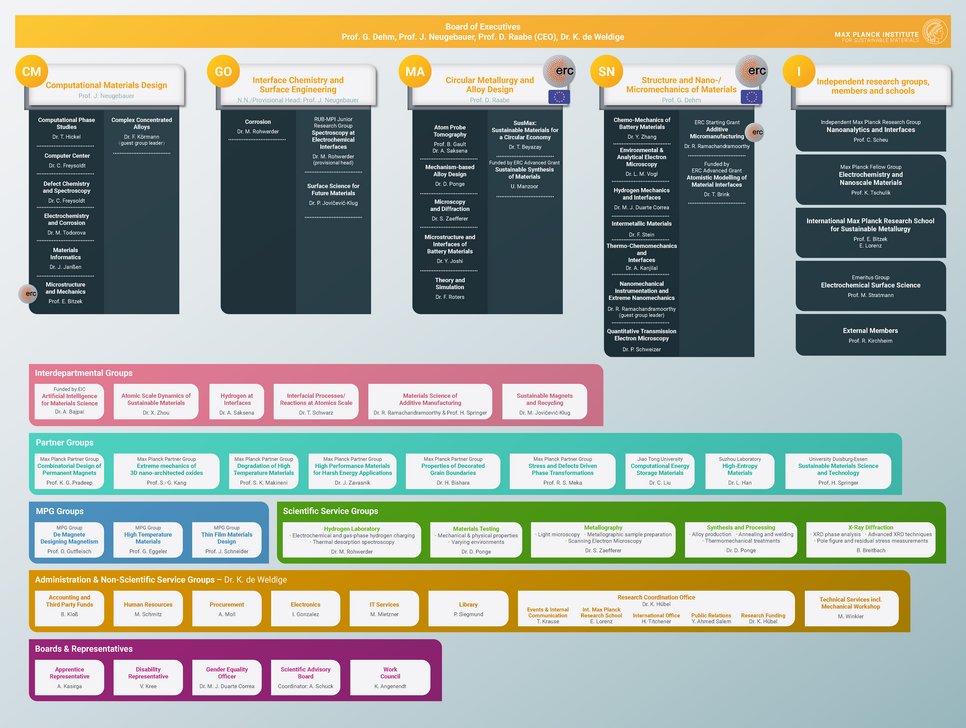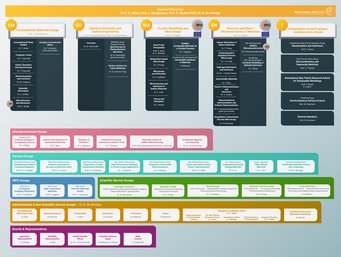Governance

The Max Planck Institute for Sustainable Materials is led by the directors of the four research departments and the administrative head. Together they form the executive board and are responsible for the strategic direction, scientific priorities, and day-to-day management of the institute.
Additionally, a scientific advisory board regularly evaluates the institute's research, advising its management on further project development and resource efficiency.
The institute strives to conduct fundamental research with practical application. This connection is reflected in the composition of the scientific advisory board, comprised of internationally renowned scientists from Germany and abroad, along with industry representatives possessing research and development expertise.
The institute undergoes regular evaluations every three years. Additionally, an extended evaluation takes place every six years, involving two additional members of the advisory board. During this process, all Max Planck Institutes specializing in materials sciences are compared. This comparative assessment aids in planning the institutes' scientific advancement and resource allocation.
Members of the Scientific Advisory Board:
Prof. Dr. Mark Asta, University of California Berkeley, Berkeley, USA
Prof. Dr. Julie Cairney, The University of Sydney, Sydney Camperdown, Australien
Prof. Dr. Fionn Dunne, Imperial College London, London, UK
Prof. Dr. Lindsay Greer, University of Cambridge, Cambridge, UK
Prof. Dr. Eva Olsson, Chalmers University of Technology, Göteborg, Schweden
Prof. Dr. George Pharr, Texas A&M University, College Station, USA
Prof. Dr. Mary P. Ryan, Imperial College London, London, UK
PD Dr. André Schneider, Thermo-Calc Software AB, Solna, Sweden
Prof. Dr. Christopher A. Schuh, Northwestern University, Evanston, USA
Prof. Dr. Sannakaisa Virtanen, Friedrich-Alexander-Universität Erlangen-Nürnberg (FAU), Erlangen, Germany
Prof. Dr. Kerstin Volz, Philipps-Universität Marburg, Marburg, Germany
Prof. Dr. Bilge Yildiz, Massachusetts Institute of Technology, Cambridge, USA
